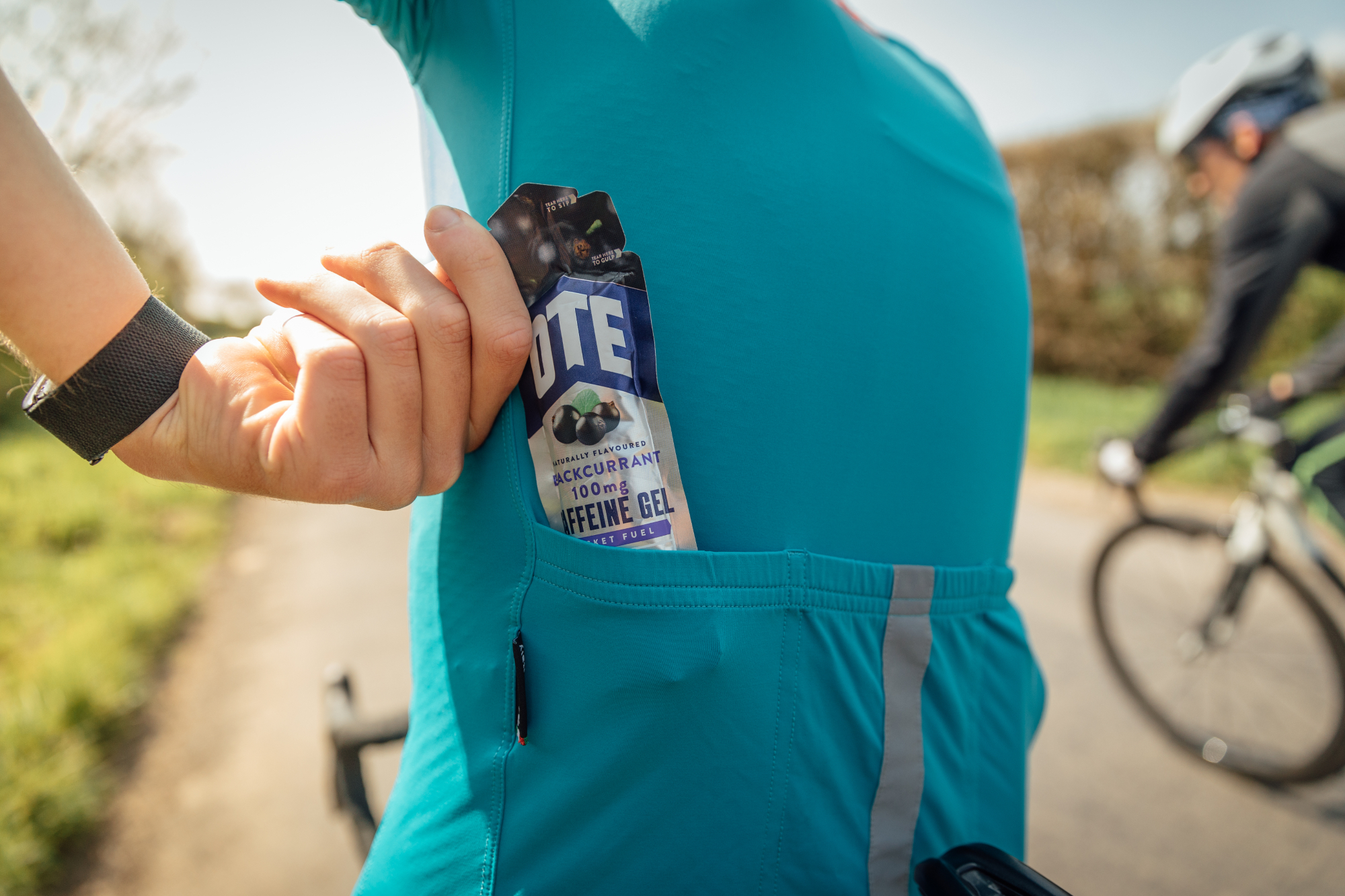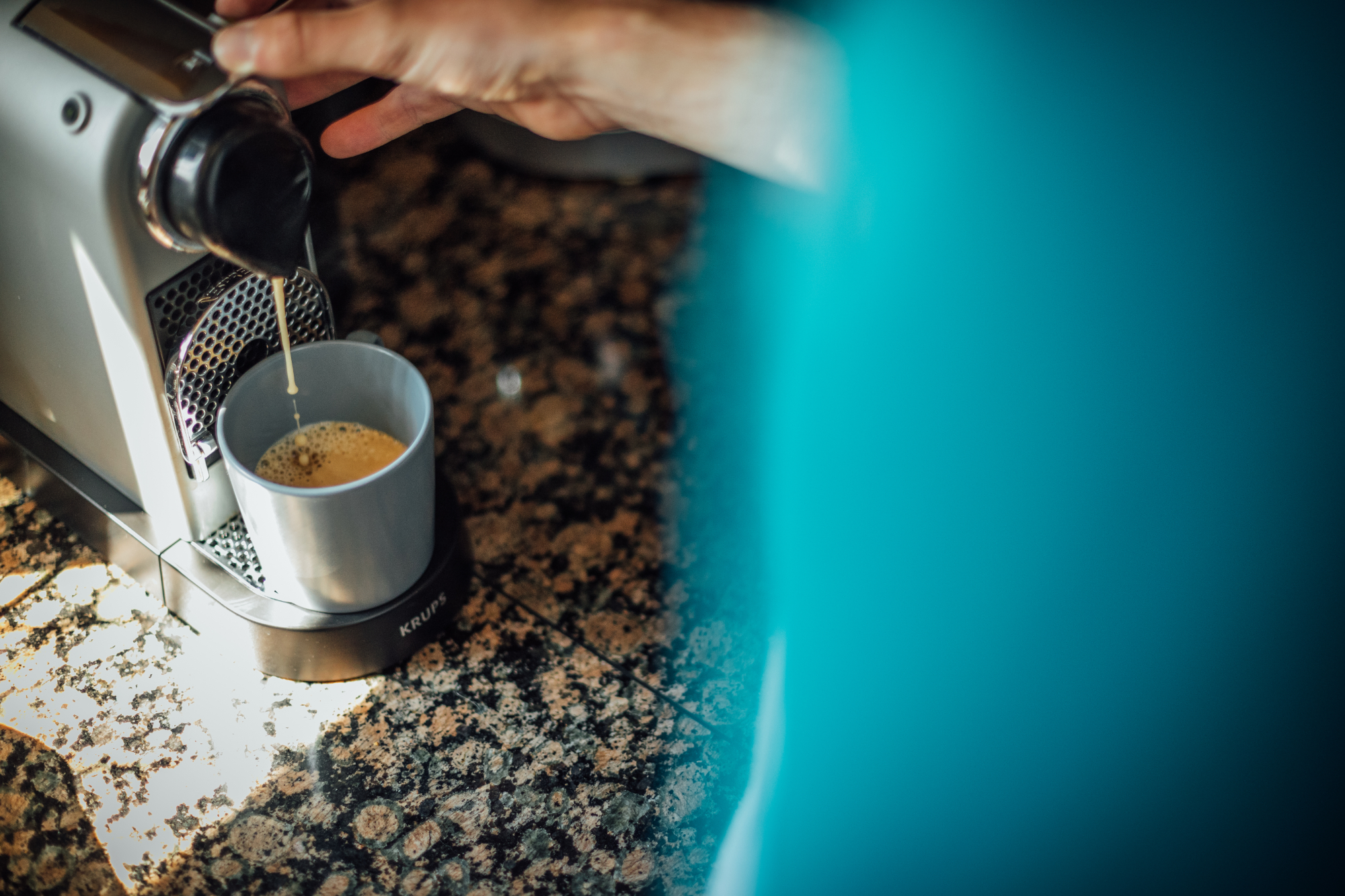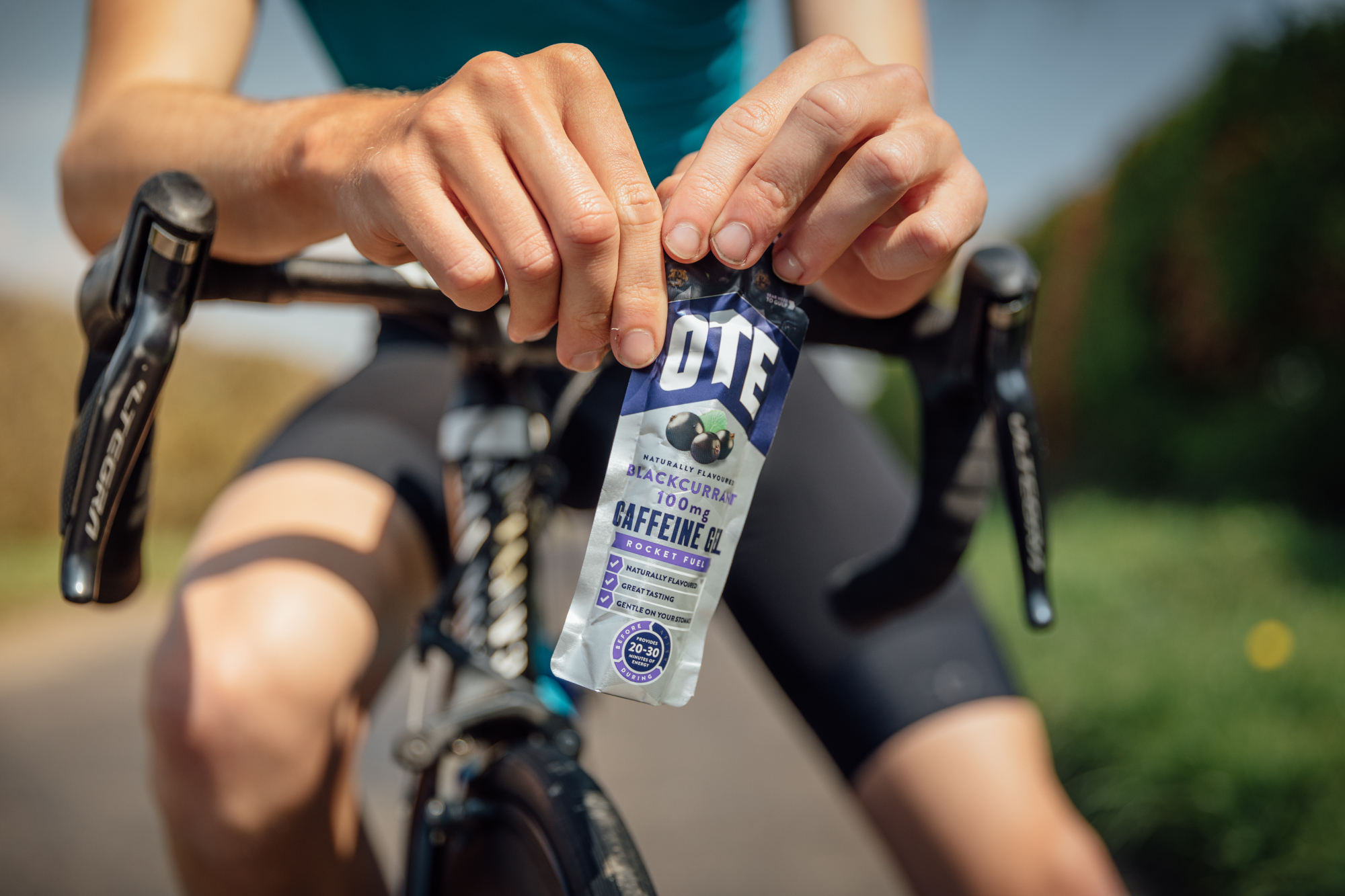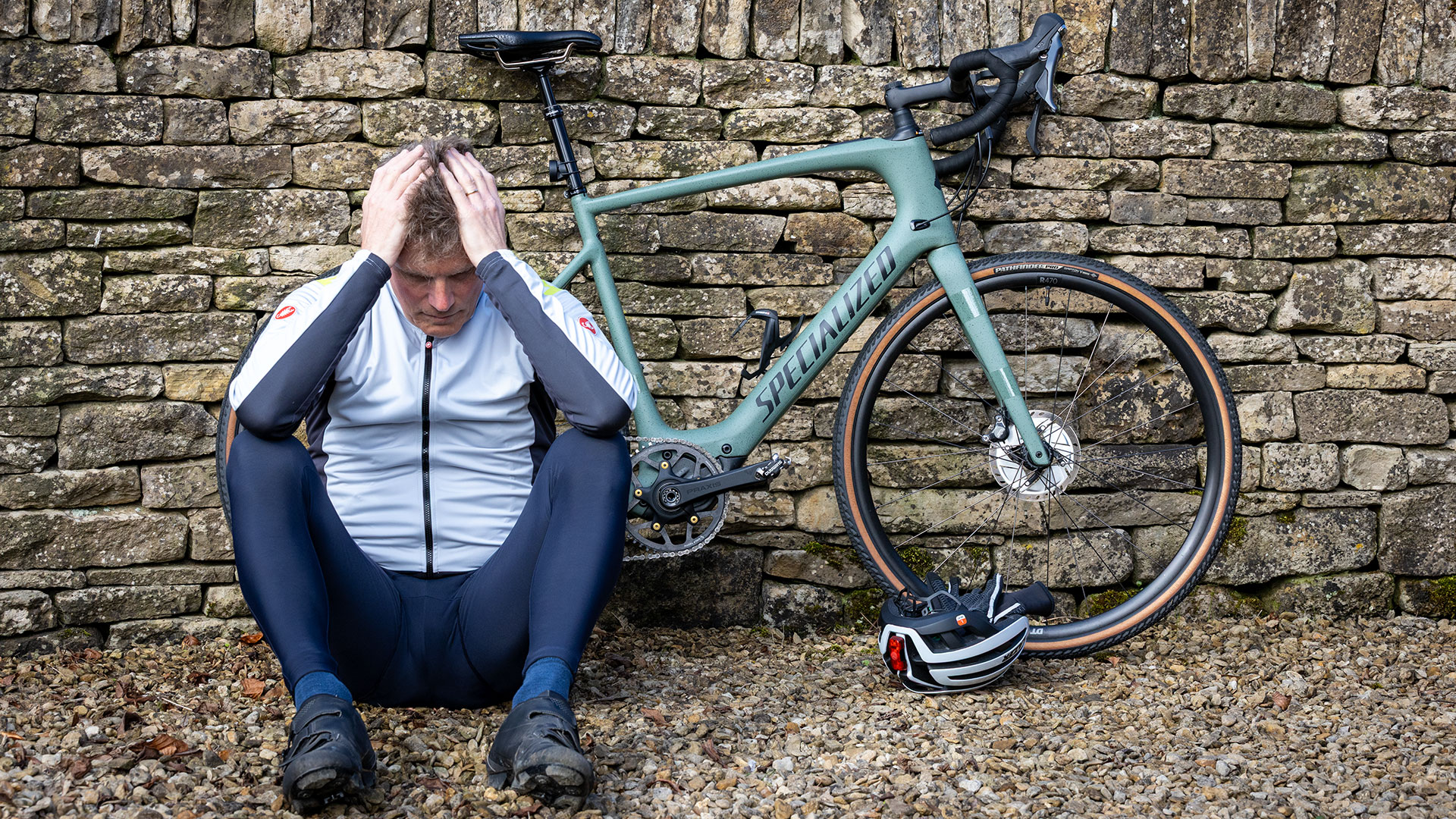Cycling and coffee: Does caffeine really boost riding performance?
How does caffeine work? Why isn’t caffeine a banned substance? Can you consume too much coffee? We take you through everything a cyclist needs to know about coffee (except for tips on how to brew it!)

Anna Marie Abram
We’re a nation of coffee lovers – slurping down a staggering 90 million cups every day. Cyclists might very well be bumping up that average, given our renowned love of coffee – the cherished mid-ride cafe stop is a rite of passage. It would be useful to know, therefore, what effects our coffee intake might be having on our health and performance. Is that coffee stop helping our cycling, and if so, how?
There's a wide array of available sports supplements for cyclists – powders, pills and potions - and as with any nutritional message reported by the media, the hype around coffee is pretty confusing and conflicting – some articles hail it as a magical superfood, while others suggest it might be an addiction we need to kick. Here, we’ll look at what the best evidence shows us, so you can make an informed decision about how much coffee to drink – and perhaps even use it to your advantage.
You might be surprised to learn that coffee, or more specifically caffeine – the constituent that provides the buzz – is classed as a psychoactive drug. That’s because it’s a stimulant, i.e. it is mind-altering, in that it affects how we think and feel. And perhaps most interestingly to cyclists, it affects how we perform too.
Cycling-specific studies tend to show improvements in performance of up to a few per cent when participants are given caffeine (or placebo) ahead of a cycling test. This seems to be true across a range of intensities and distances. For example, studies have shown a 3.1 per cent improvement in a 1km time trial, a 1.9 per cent improvement in a 5km time trial, and 34 seconds extra staying power (0.8 per cent improvement) when cyclists were challenged to perform to exhaustion after an hour cycling at 70 per cent of VO2 max. These kinds of improvements might seem marginal, but they can make all the difference in both competition and training sessions.

Many research papers in exercise science have predominantly focused on men, with sports science only telling us half the story. But studies have also demonstrated the positive effect caffeine can have on performance across women as well as men. The results, published in the journal Nutrients found that the male participants improved by 2.1 per cent with caffeine compared to with the placebo, whilst women improved by 1.8 per cent. Compared to the control, men improved 1.2 per cent and women 1.1 per cent - with researchers concluding that the caffeine affected both genders to a "similar magnitude".
The effects of caffeine on general exercise performance have been extensively researched. Once enough studies have taken place on any topic, it’s possible to conduct what’s known as a meta-analysis, where researchers combine the results from all previous suitable studies to give us an overview of the entire scientific literature on that topic. These meta-analyses are known as the ‘gold-standard’ of scientific research because they combine large amounts of data and don’t rely on any one study alone. So much research has now been done on the performance enhancing effects of caffeine that it’s been possible to conduct several meta-analyses.
The ‘super-review’ confirms that caffeine does indeed exert a significant ergogenic (performance-enhancing) effect on muscle endurance, muscle strength, anaerobic power, and aerobic endurance. So, whether you’re a track sprint cyclist, compete in ultra-distance multi-stage events, or anything in between, coffee, or caffeine in some other form, could be a useful tool to improve your times. It’s worth noting that many of the individual studies included in this large review were conducted in hobby and leisure cyclists, so whatever your level, you could benefit from a nice brew beforehand.
Get The Leadout Newsletter
The latest race content, interviews, features, reviews and expert buying guides, direct to your inbox!
Interestingly, several national and international institutions, such as the Australian Institute for Sport and the International Olympic Committee, have classification systems for grading the effectiveness and safety of sports nutrition products. All of them place caffeine in the highest tier, because there’s so much evidence showing that it is reliably effective, with low risk to health at suitable doses.
Why isn’t caffeine a banned substance?

This raises the question, if caffeine has such potent performance-enhancing effects, why hasn’t it been banned? Well, until 2004, it was – at least at high concentrations. The World Anti Doping Agency (WADA) could throw athletes out of competition, including the Olympics, if high concentrations were found in their urine. The trouble is that monitoring caffeine intake is uniquely complicated. It’s naturally occurring in various foods and drinks, like chocolate and caffeinated soft drinks, i.e. things consumed as part of an athlete’s normal diet. In addition, caffeine is metabolised at different rates in different people, making it hard to determine usage patterns.
Performance-enhancing doses of caffeine are also much lower than previously thought; even the amount in a regular cup of coffee could have an effect. So, it was removed from the WADA banned substance list. Some still argue that caffeine may provide an unfair advantage, and some agencies, such as the USA’s National Collegiate Athletic Association, still limit its use (at high doses).
How does caffeine work?

A key mechanism is thought to be how it stimulates the central nervous system by blocking a chemical called adenosine. Ordinarily adenosine builds up in the brain throughout the day and has a negative effect on neurotransmission, wakefulness, and pain perception. So it makes sense that caffeine can reduce fatigue, dampen pain reception, blunt our perception of effort, and improve alertness and concentration. All this leads to significantly improved performance, in most people.
Recent research shows that, contrary to popular belief, caffeine does not, even at moderately high intakes, lead to dehydration during exercise. What’s more, using caffeine regularly doesn’t seem to diminish its short-term performance-enhancing properties. Even before your ride, caffeine may help boost motivation to exercise – so it could tip the balance between powering through a productive indoor cycling session or deciding to spend another hour on the sofa watching TV. It’s another very real potential benefit.
How much caffeine should you take and when’s the best time to do so?

Optimising your caffeine intake - quantity and timing - can see improvements in performance.
As with any nutritional advice, intake should always be tailored to the individual, but as a rule of thumb studies show that the effects of a cup of coffee can be noticed after just 10 minutes, with peak caffeine concentrations in the blood occurring between 30-60 minutes after consumption. An hour or so before training or competition is therefore an effective time window for most of us.
The majority of studies on caffeine use a large single dose, between three and six milligrams (mg) for every kilo of bodyweight. For example, a 60kg cyclist would take between 180-360mg of caffeine – that’s two or three cups of coffee. However, there’s a growing body of evidence to show that lower doses, under 3mg per kilo of bodyweight, can still have a significant ergogenic effect – that’s as little as a single cup of strong coffee.
As the response to caffeine ingestion is individual, it is important to test your caffeine strategy in a training session before taking for an important event, or tackling your goal of the year, say, riding your first 100-miles.
Can you consume too much coffee?
To weigh up whether caffeine might be appropriate for you, it’s important to consider the potential risks and side-effects. Some people hardly notice a difference after several strong coffees, whereas others are highly sensitive to caffeine and feel jittery, anxiousness and restless after just small amounts.
This difference in caffeine metabolism is mostly genetic – if you’re in the latter group, then it may be best to stick to lower intakes (under 3mg/kg bodyweight) or eschew caffeine altogether, as those side-effects may offset any improvements in performance and detract from your enjoyment of cycling. Of course, you may be more sensitive to caffeine if you’re less used to consuming it. There’s also some evidence that coffee could increase the risk of non-fatal myocardial infarction (heart attack) among those with the gene for slow caffeine metabolism.
Especially when taken in supplement form, it’s easy to take too much, so never take more than the suggested dose on the packs of caffeinated gum, tablets, or other medication. In 2015, two sports science students at Northumbria University ended up in a life-threatening condition after mistakenly consuming 30g of caffeine instead of the intended 0.3g.
Several organisations advise keeping under 400mg a day, or lower if you are more sensitive to caffeine. You should also bear in mind how caffeine can impact upon sleep, so you may want to avoid drinking coffee in the afternoon or evening as it can take up to nine hours to eliminate the caffeine from your bloodstream. Recovery is just as important as training, and “sleep is probably the single most important factor for cycling” says Science to Sport performance coordinator John Wakefield.
Caffeine doses in coffee, tea, energy drinks and gum compared

Caffeine can be consumed as part of regular cup of coffee with breakfast, or as part of sport specific products such as energy gels and drinks. Let's take a look at how much caffeine you can find in common foods and drinks:
| Food or drink | Portion size | Typical caffeine content (mg) |
| Coffee, brewed from grounds* | 240ml (1 cup) | 96 |
| Coffee, instant* | Dry weight 0.9g (1 tsp) | 28 |
| Coffee, espresso* | Dry weight 0.9g (1 tsp) | 127 |
| Breakfast tea, brewed five minutes*** | 170ml (6oz) | 25 |
| Breakfast tea, brewed three minutes*** | 170ml (6oz) | 22 |
| Green tea, brewed three minutes*** | 170ml (6oz) | 27-46 |
| Dark chocolate, 70-85% cocoa solids* | 28 (1oz) | 23 |
| Coca Cola, original** | 330ml (1 can) | 32 |
| Coca Cola, diet** | 330ml (1 can) | 42 |
| Red Bull, regular** | 250ml (1 can) | 80 |
| Lucozade, original** | 380ml (1 bottle) | 46 |
| Pro Plus** | 1 tablet | 50 |
| Healthspan Elite Caffeine Gum** | 1 gum | 100 |
* Data from USDA FoodData Central https://fdc.nal.usda.gov and individual brand nutrition information
**Selected manufacturers
*** Caffeine Content of Brewed Teas
So, to conclude, there’s masses of robust evidence showing how caffeine can significantly improve performance. But, as with any other ergogenic aid, it’s useful to think of supplements as the icing on the cake: the foundations – your day to day training sessions, recovery and fuelling – are far more important, so it’s critical to get the basics right first before fine tuning the smaller details. There are no shortcuts when it comes to maximising your performance and you can’t expect a supplement like caffeine to make up for a shortfall in your diet or lifestyle. That said, if you’ve put in the groundwork and feel you could benefit from an extra little pick-me-up, then consuming caffeine could be a legitimate and effective way to give you the edge you were looking for.

Thank you for reading 20 articles this month* Join now for unlimited access
Enjoy your first month for just £1 / $1 / €1
*Read 5 free articles per month without a subscription

Join now for unlimited access
Try first month for just £1 / $1 / €1
TJ Waterfall is a qualified sports nutritionist, specialising in vegan nutrition.
- Anna Marie AbramFitness Features Editor
-
 Why do I feel like a cheat every time I ride my e-bike?
Why do I feel like a cheat every time I ride my e-bike?I love my e-bike but struggle with the shame that accompanies me on my rides. Why?
By Simon Fellows
-
 WTB Vulpine S TCS Gravel Tyre review - turbo charge your gravel racing (in the right conditions)
WTB Vulpine S TCS Gravel Tyre review - turbo charge your gravel racing (in the right conditions)The WTB Vulpine S TCS Gravel Tyre is unashamedly aimed at riders who value speed above all else; mudpluggers need not apply
By Tim Russon